Strictly Personal
I stand with Buhari by Lasisi Olagunju
Published
2 years agoon

The story you are about to read was published by the Nigerian Tribune 38 years ago. It was the lead story of its June 5, 1984 edition. Written by Joe Aladesohun, it was headlined: ‘Man commits suicide’ with a rider: ‘frustration at the bank’.
The report:
A middle-aged man committed suicide in Ibadan last Wednesday following what sources described as “series of hopeless visits to his bank for cash.”
The partly decomposed body of Mr. K. O. (I withhold the name), a 48-year-old civil servant of the accounts department of the Oyo State Ministry of Information, Youths, Sports and Culture, was found dangling under the ceiling fan in one of his rooms three days after his death.
A suicide note left on a stool in the room showed that he decided to end his life out of frustration.
The deceased was said to have collapsed twice in the premises of a bank and was rushed home on each occasion without cash.
Last Monday, May 28, two days before he committed suicide, somebody had given him N2 (two naira) after narrating his ordeal.
An ulcer patient, the deceased was said to have complained about taking only pap, his regular meal, since he couldn’t withdraw cash from his bank.
His remains were laid to rest on Monday at the public cemetery, Sango, Ibadan.
Contacted on telephone on Monday, the state Police Commissioner, Mr. Archibong Nkana, simply said: “I think there was something like that.”
The suicide note left behind by the deceased reads: “Do not forget that I have insisted that the receipt of the purchased stationery is in the steel cabinet. I’m sorry I have to end up this way but I think that is the only way open to me.
“Find the cheque and the cheque book in the cupboard. I have done all I can to maintain a fairly good standard.
“The keys to the cupboard are in my drawer. The payment vouchers are in the steel cabinet.
“My burial should be simple, no mourning, no wailing, no reason for that.
“Bye, comrades, I have beaten the gun.” (End of story).
I work in a place with a library that houses almost all editions of all newspapers that have ever been published in Nigeria. J.K. Rowling, author of the Harry Potter fantasy series, said “when in doubt, go to the library.” I consult the library for the same reason the diviner goes to his crystal ball. “Journalism is history on the run…history written in time to be acted upon,” said Thomas Griffith in the January 1959 issue of Nieman Reports. There is always an answer in history – and in journalism – and in the library. Insights into questions on everything are there, always, if you bore deep enough. I did that after listening to President Muhammadu Buhari’s lamentation in Owerri, Imo State, last week about his not being appreciated for the great work he has done (and is doing) with our lives. “This administration has done extremely well. I have to say it because those who are supposed to say it are not saying it. I don’t know why,” he said. I listened to him and felt he was in too much of a hurry. He was here from December 1983 to August 1985. During his first coming, he did so much with Nigerians, one of which was the currency exchange exercise of April/May 1984 which killed the man in the above story.
Buhari as military head of state did so many things that made children of those days grow old suddenly. It wasn’t enough that you had money in your bank accounts. Access to what you had was at the whim of the potentate in Dodan Barracks, Lagos, the then seat of government. People queued for days to get cash from their banks and went home empty-handed. Some got thoroughly whipped by soldiers on a corrective mission. Today’s young people can’t believe such was possible. But they happened. He made a law that made it a crime for journalists to publish the truth if it embarrassed people in government. He used that law to jail two Guardian journalists for publishing the truth. There was a scarcity of everything, including fundamental freedoms and staple foods. Nigerians cried for justice and rights and queued for sugar and rice. Buhari did many more to groups and individuals from the sea to the desert. Then, he was sacked by his comrades on August 27, 1985. Ibrahim Babangida, the man who replaced him, summed his regime up in the following words: “The last 20 months have not witnessed any significant changes in the national economy. Contrary to expectations, we have so far been subjected to a steady deterioration in the general standard of living; and intolerable suffering by ordinary Nigerians has risen higher; scarcity of commodities has increased…. Unemployment has stretched to critical dimensions.” Buhari was removed and replaced and there were wild jubilations. He must have felt terribly let down by that attitude of ingratitude – exactly as he feels now.
In 1985, Buhari believed he did very well; in 2022, he is convinced of his excellent pass mark in his current tour of duty. He has built roads and rail lines; he is building roads and rail lines. But he has also amassed debts enough to chew for ten centuries. And this is precisely where I am going. For his ‘excellent’ service as military ruler, the appreciation did not come for General Buhari in 1985 but it came thirty years later. Everyone who was his victim during his first life went looking for him to come back in 2015. Even Babangida supported him. Not many humans are that blessed. He is blessed. All his victims formed an armada of excuses to bring him back to power. They scented the septic in his tank and served it to the street as àmàlà and gbègìrì. He became a hurricane, the type that tore through woods and rocks. At least one of the jailed journalists, Tunde Thompson, openly campaigned for his election in 2015. “I have seen that time is a healer of certain wounds because people are still asking: ‘the man who jailed you wants to become president, what do you feel about it?’ They asked if I would vote for such a man. I want to say categorically that Buhari as the head of state at the time didn’t order the detention of Mr. Tunde Thompson and Nduka Irabor. He never did. Even Idiagbon did not. It was the head of NSO that ordered our arrest. That was the file my colleague saw when he was brought in to see Rafindadi after I had briefed him. And that was an order that they complied with. Buhari was not responsible for our arrest, so I do not see why at this time people are trying to make political capital out of what happened in 1984. Apart from that, it was an issue in the 2011 election. Between 2010 and 2011 people kept saying this over and over again. I think it’s now over 30 years, people should learn to be charitable; they should learn to forgive and let bygones be bygones, especially when we know the truth about who did what. I would like to say that Buhari didn’t order my arrest, so I bear no grudge against him,” the journalist said and added that he would vote for Buhari because he believed “that a person like Buhari at this time can call anybody to order and some people are afraid of that.”
I am sure that the man who killed himself in the above story, if he reincarnated and was around in 2015 as an àkúdàáyà, he would probably be one of the 15 million Nigerians who brought Buhari back. If it was a spell, it worked very well. It can still work again.
So, the president should not be angry in 2022 that we are hostile to the pangs and pains of his loving-kindness towards us. We will praise him tomorrow. He should ignore those who are supposed to sing the song of his excellence in power but are not saying it. The naira may exchange at a million for a US dollar; ASUU may be on strike for a year and universities closed forever; bandits and terrorists may continue to stop and shoot at moving trains; kidnappers may kidnap kings, governments and governors; the road to the farm may be shut to farmers; the path to the brook may be closed to fetchers of water; life may be generally brutish, nasty and short. Buhari should just calm down, eat and pick his teeth. All those won’t matter in the long run –which is not far away. We have a history of doing what abusive snail does to Òrìsà; it always goes back, shell and radula, with a rasping apology. If the world does not come to an end soon, every one of us abusing this president today may still beg him to stay here forever – or come back after his final round.
Do not just read the president; watch him. It is only by watching Buhari that you can read enough of his inscrutably opaque mind. Look for his Imo State video and watch how he looks as he says this: “This administration has done extremely well. I have to say it because those who are supposed to say it are not saying it. I don’t know why.” Who do you think he is referring to as the “they” who are “not saying it”? Lai Mohammed? No. Femi Adesina? No. Garba Shehu? No. Buhari does not have the character of a leader who throws his loyal lieutenants under the bus. Not at all. Those “who are supposed to say it but are not saying it” are the president’s party men; those who scheme to use his fingers to pull their chestnuts out of the fire of electoral politics without being seen with him. They are the ACN/ANPP people in the APC; the èmi l’ó kàn people. Bola Tinubu is ACN; his running mate, Kashim Shettima, is ANPP. Shettima campaigns with his Borno achievements; Tinubu flaunts his Lagos claims as proof of his leadership ingenuity. Neither is touching Buhari and his government with a long pole.
Was that how they started in 2015? No. Not even in 2019 did the current champions erect a Berlin Wall between their ‘ingenuity’ and Buhari’s ‘integrity.’ So, I stand with Buhari. Let the ACN/ANPP people stop running away from promoting his legacies. Ibadan people say those who dined with Salami Agbaje must compulsorily address him as Bàbá l’Áyéyé. “Truth always prevails in the end,” wrote Lord Acton, “but only when it has ceased to be in someone’s interest to prevent it from doing so.” What we have in the ruling party is a divorce without physical separation. It is like the candidates of the APC (top to bottom) want the party without its problem. The government is that problem; it is a floundering ship which no one outside the cockpit is willing to save. They campaign as an opposition with adversarial promises that should anger Buhari and his loyalists.
How is this likely to end? I have tried searching literature and history. I have read the story of Ali Baba and the Forty Thieves. The rogues lost everything, Ali Baba survived. I have read Treasure Finders – another tale of a band of thieves who abducted a man of charms and got him to rain for them the Seven Things of Price: gold, silver, pearl, coral, catseye, ruby, and diamond. The thieves here got their price but also lost it; they murdered one another; none survived, not even the innocent abducted man who rained for them the treasure. Those who fished out Buhari and made him their candidate in 2015 did not do it because they loved him or wished Nigeria well. He was retired and tired of losing repeatedly. But because they saw in him a shortcut to their life ambition to rule Nigeria, they went to Kaduna and told him: “come and contest again, we will back you and you will win.” They saw in his hand the magic wand to command 12 million northern votes. He surrendered to them and contested and won and the skies came down and collided with the earth. From top to bottom, the world went bad. Those who brought him now seek to be quiet on everything about his regime. Good or bad, they cannot now run away from drinking from the well of Buhari’s years. They should market themselves in Buhari’s tray. They swam with him in 2015 and 2019; they must swim and/or sink with him in 2023.
You may like
-


This Sudan war is too senseless; time we ended it, By Tee Ngugi
-


Air Peace, capitalism and national interest, By Dakuku Peterside
-


This is chaos, not governance, and we must stop it, By Tee Ngugi
-


Off we go again with public shows, humbug and clowning, By Jenerali Uliwengu
-


How patriarchy underpins gender violence today, By Tee Ngugi
-


Help! There’s a dangerous, secret plot to save the EAC from imminent death, By Charles Onyango-Obbo
Strictly Personal
This Sudan war is too senseless; time we ended it, By Tee Ngugi
Published
6 days agoon
April 28, 2024
Why are the Sudanese Armed Forces (SAF) and the paramilitary Rapid Support Forces (RPF) engaged in a vicious struggle? It is not that they have ideological, religious or cultural differences.
Not that people should fight because of these kinds of differences, but we live in a world where social constructions often lead to war and genocide. It is not that either side is fighting to protect democracy. Both sides were instruments of the rapacious dictatorship of Omar el-Bashir, who was overthrown in 2019.
Both are linked to the massacres in Darfur during Bashir’s rule that led to his indictment by the International Criminal Court for crimes against humanity. They both stood by as ordinary, unarmed people took to the streets and forced the removal of the Bashir regime.
None of these entities now fighting to the last Sudanese citizen has any moral authority or constitutional legitimacy to claim power. They both should have been disbanded or fundamentally reformed after the ouster of Bashir.
The SAF and the RSF are fighting to take over power and resources and continue the repression and plunder of the regime they had supported for so long. And, as you can see from news broadcasts, they are both well-versed in violence and plunder.
Since the fighting began in 2023, both sides have been accused of massacres that have left more than 30,000 people dead. Their fighting has displaced close to 10 million people. Their scramble for power has created Sudan’s worst hunger crisis in decades. Millions of refugees have fled into Chad, Ethiopia and South Sudan.
The three countries are dubious places of refuge. Chad is a poor country because of misrule. It also experiences jihadist violence. Ethiopia is still simmering with tensions after a deadly inter-ethnic war.
And South Sudan has never recovered from a deadly ethnic competition for power and resources. African refugees fleeing to countries from which refugees recently fled or continue to flee sums up Africa’s unending crisis of governance.
Africa will continue to suffer these kinds of power struggles, state failure and breakdown of constitutional order until we take strengthening and depersonalising our institutions as a life and death issue. These institutions anchor constitutional order and democratic process.
Strong independent institutions would ensure the continuity of the constitutional order after the president leaves office. As it is, presidents systematically weaken institutions by putting sycophants and incompetent morons in charge. Thus when he leaves office by way of death, ouster or retirement, there is institutional collapse leading to chaos, power struggles and violence. The African Union pretends crises such as the one in Sudan are unfortunate abnormally. However, they are systemic and predictable. Corrupt dictatorships end in chaos and violence.
Tee Ngugi is a Nairobi-based political commentator.
Strictly Personal
Air Peace, capitalism and national interest, By Dakuku Peterside
Published
3 weeks agoon
April 16, 2024
Nigerian corporate influence and that of the West continue to collide. The rationale is straightforward: whereas corporate activity in Europe and America is part of their larger local and foreign policy engagement, privately owned enterprises in Nigeria or commercial interests are not part of Nigeria’s foreign policy ecosystem, neither is there a strong culture of government support for privately owned enterprises’ expansion locally and internationally.
The relationship between Nigerian businesses and foreign policy is important to the national interest. When backing domestic Nigerian companies to compete on a worldwide scale, the government should see it as a lever to drive foreign policy, and national strategic interest, promote trade, enhance national security considerations, and minimize distortion in the domestic market as the foreign airlines were doing, boost GDP, create employment opportunities, and optimize corporate returns for the firms.
Admitted nations do not always interfere directly in their companies’ business and commercial dealings, and there are always exceptions. I can cite two areas of exception: military sales by companies because of their strategic implications and are, therefore, part of foreign and diplomatic policy and processes. The second is where the products or routes of a company have implications for foreign policy. Air Peace falls into the second category in the Lagos – London route.
Two events demonstrate an emerging trend that, if not checked, will disincentivize Nigerian firms from competing in the global marketplace. There are other notable examples, but I am using these two examples because they are very recent and ongoing, and they are typological representations of the need for Nigerian government backing and support for local companies that are playing in a very competitive international market dominated by big foreign companies whose governments are using all forms of foreign policies and diplomacy to support and sustain.
The first is Air Peace. It is the only Nigerian-owned aviation company playing globally and checkmating the dominance of foreign airlines. The most recent advance is the commencement of flights on the Lagos – London route. In Nigeria, foreign airlines are well-established and accustomed to a lack of rivalry, yet a free-market economy depends on the existence of competition. Nigeria has significantly larger airline profits per passenger than other comparable African nations. Insufficient competition has resulted in high ticket costs and poor service quality. It is precisely this jinx that Air Peace is attempting to break.
On March 30, 2024, Air Peace reciprocated the lopsided Bilateral Air Service Agreement, BASA, between Nigeria and the United Kingdom when the local airline began direct flight operations from Lagos to Gatwick Airport in London. This elicited several reactions from foreign airlines backed by their various sovereigns because of their strategic interest. A critical response is the commencement of a price war. Before the Air Peace entry, the price of international flight tickets on the Lagos-London route had soared to as much as N3.5 million for the economy ticket. However, after Air Peace introduced a return economy class ticket priced at N1.2 million, foreign carriers like British Airways, Virgin Atlantic, and Qatar Airways reduced their fares significantly to remain competitive.
In a price war, there is little the government can do. In an open-market competitive situation such as this, our government must not act in a manner that suggests it is antagonistic to foreign players and competitors. There must be an appearance of a level playing field. However, government owes Air Peace protection against foreign competitors backed by their home governments. This is in the overall interest of the Nigerian consumer of goods and services. Competition history in the airspace works where the Consumer Protection Authority in the host country is active. This is almost absent in Nigeria and it is a reason why foreign airlines have been arbitrary in pricing their tickets. Nigerian consumers are often at the mercy of these foreign firms who lack any vista of patriotism and are more inclined to protect the national interest of their governments and countries.
It would not be too much to expect Nigerian companies playing globally to benefit from the protection of the Nigerian government to limit influence peddling by foreign-owned companies. The success of Air Peace should enable a more competitive and sustainable market, allowing domestic players to grow their network and propel Nigeria to the forefront of international aviation.
The second is Proforce, a Nigerian-owned military hardware manufacturing firm active in Rwanda, Chad, Mali, Ghana, Niger, Burkina Faso, and South Sudan. Despite the growing capacity of Proforce in military hardware manufacturing, Nigeria entered two lopsided arrangements with two UAE firms to supply military equipment worth billions of dollars , respectively. Both deals are backed by the UAE government but executed by UAE firms.
These deals on a more extensive web are not unconnected with UAE’s national strategic interest. In pursuit of its strategic national interest, India is pushing Indian firms to supply military equipment to Nigeria. The Nigerian defence equipment market has seen weaker indigenous competitors driven out due to the combination of local manufacturers’ lack of competitive capacity and government patronage of Asian, European, and US firms in the defence equipment manufacturing sector. This is a misnomer and needs to be corrected.
Not only should our government be the primary customer of this firm if its products meet international standards, but it should also support and protect it from the harsh competitive realities of a challenging but strategic market directly linked to our national military procurement ecosystem. The ability to produce military hardware locally is significant to our defence strategy.
This firm and similar companies playing in this strategic defence area must be considered strategic and have a considerable place in Nigeria’s foreign policy calculations. Protecting Nigeria’s interests is the primary reason for our engagement in global diplomacy. The government must deliberately balance national interest with capacity and competence in military hardware purchases. It will not be too much to ask these foreign firms to partner with local companies so we can embed the technology transfer advantages.
Our government must create an environment that enables our local companies to compete globally and ply their trades in various countries. It should be part of the government’s overall economic, strategic growth agenda to identify areas or sectors in which Nigerian companies have a competitive advantage, especially in the sub-region and across Africa and support the companies in these sectors to advance and grow to dominate in the African region with a view to competing globally. Government support in the form of incentives such as competitive grants ,tax credit for consumers ,low-interest capital, patronage, G2G business, operational support, and diplomatic lobbying, amongst others, will alter the competitive landscape. Governments and key government agencies in the west retain the services of lobbying firms in pursuit of its strategic interest.
Nigerian firms’ competitiveness on a global scale can only be enhanced by the support of the Nigerian government. Foreign policy interests should be a key driver of Nigerian trade agreements. How does the Nigerian government support private companies to grow and compete globally? Is it intentionally mapping out growth areas and creating opportunities for Nigerian firms to maximize their potential? Is the government at the domestic level removing bottlenecks and impediments to private company growth, allowing a level playing field for these companies to compete with international companies?
Why is the government patronising foreign firms against local firms if their products are of similar value? Why are Nigerian consumers left to the hands of international companies in some sectors without the government actively supporting the growth of local firms to compete in those sectors? These questions merit honest answers. Nigerian national interest must be the driving factor for our foreign policies, which must cover the private sector, just as is the case with most developed countries. The new global capitalism is not a product of accident or chance; the government has choreographed and shaped it by using foreign policies to support and protect local firms competing globally. Nigeria must learn to do the same to build a strong economy with more jobs.
EDITOR’S PICK
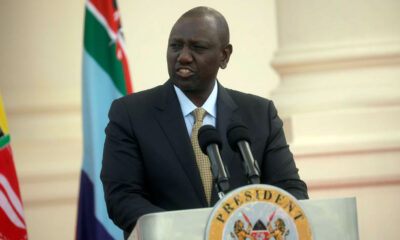

Kenya: President Ruto hints at ‘dire’ weather outlook as Cyclone Hidaya nears
President William Ruto has announced that the severe rains that have been plaguing Kenya for the past several weeks resulting...
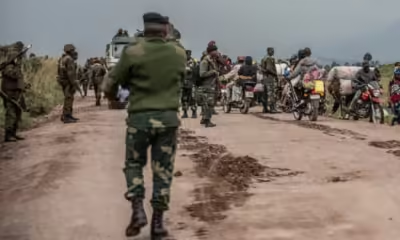

Again, Rwanda denies it attacked displaced persons in DR Congo
For the sixteenth time, Rwanda refuted US charges on Saturday that its troops attacked a camp for internally displaced persons...


Nigeria offers oil majors faster exit if …
Oil-rich West African country, Nigeria, has offered major oil companies, such as Exxon Mobil and Shell, that planned to leave...


Nigeria’s Security Exchange chief to meet foreign, local crypto exchanges, others over crypto regulation
On Monday, local and international cryptocurrency exchanges will meet with Dr. Emomotimi Agama, the recently appointed Director General of the...


Rhino Resources, BP-Eni JV sign agreement for Namibia offshore licence
Rhino Resources Namibia and a BP-Eni joint venture have agreed to share a 42.5% stake in a block located in...
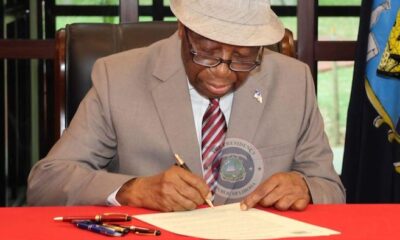

Liberia: President Boakai signs order to create war crimes court
To provide long-overdue justice to those who suffered grave injustices during the two civil wars that raged in Liberia, President...
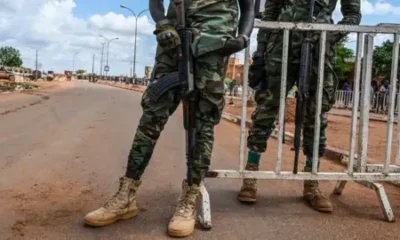

US official accuses Russian troops of entering base housing US military in Niger
According to a senior United States defence official quoted by Reuters, Russian military soldiers have entered an air base in...
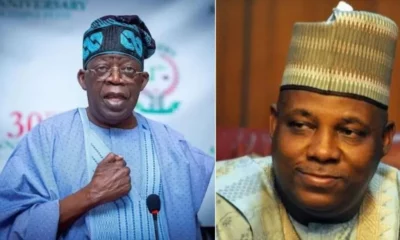

Nigeria’s presidency insists reforms prevented economic collapse
Nigeria’s presidency on Thursday reiterated that the current administration’s economic reforms of the past one year “saved the life of...
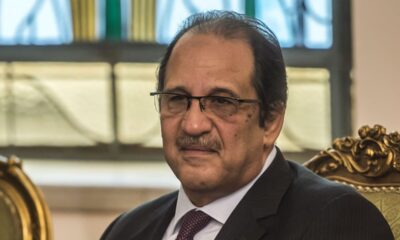

Hamas leader in talks for Gaza ceasefire with Egypt, Qatar
Ismail Haniyeh, the leader of Hamas, spoke with Abbas Kamel, the head of Egypt’s security services, and Mohammed bin Abdulrahman...


Kenya agri-tech startup iProcure placed under administration over unpaid debts
Kenyan agri-tech startup, iProcure, has been placed under administration due to its inability to clear up undisclosed debts. The advisory...
Trending
-

 VenturesNow1 day ago
VenturesNow1 day agoNigeria’s Insurance Corporation raises maximum deposit coverage from N500k to N5m
-

 Sports1 day ago
Sports1 day agoLiverpool legend Graham Souness wants ‘selfish’ Salah to leave club
-
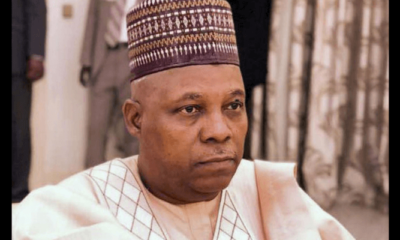
 Metro2 days ago
Metro2 days agoNigeria’s economy will witness positive changes after painful sacrifice— VP Shettima
-

 Culture1 day ago
Culture1 day agoEgypt unveils stamp to mark 100th anniversary of relationship with Brazil


